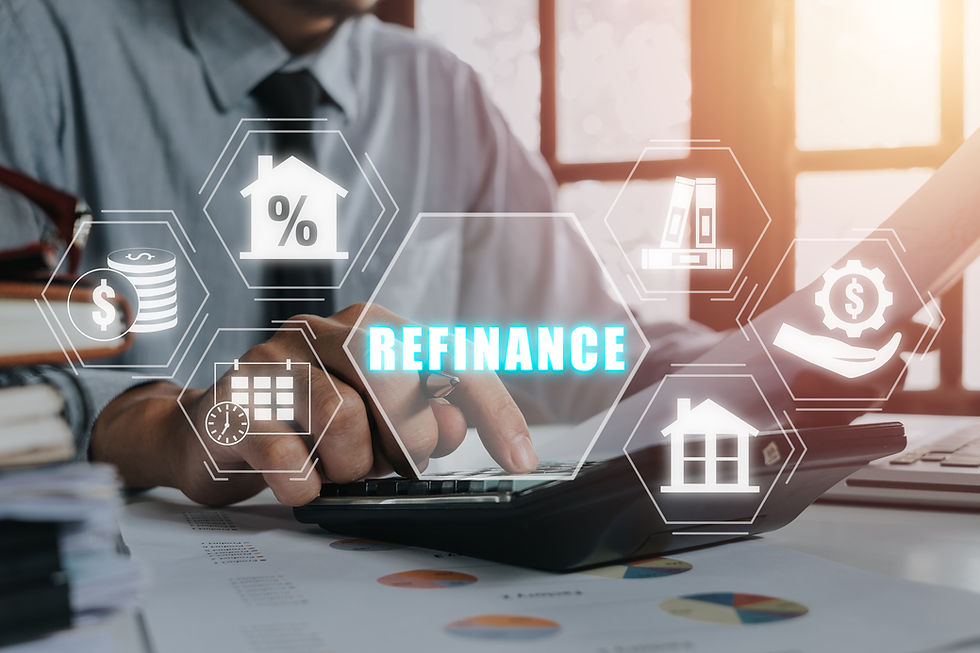Is your home loan working for you? Seeking the best home loan solution does not end with your unconditional approval and settlement. If you want to make the most of your financial situation, you need to keep your eye on the health of your loan and how well it is working for you. If you are questioning the value of your current loan, refinancing might be an option to consider.

When you refinance, you exchange your current mortgage for a new mortgage. This new mortgage then pays off your old mortgage. As you are entering into a new financial application you will need to provide all the personal and financial details that you provided with the original mortgage. This can incur a range of fees including application fees, discharge fees, early exit fees, property valuation fees and mortgage registration fees.
Refinancing can see you transfer to a loan with a much more competitive interest rate and better features. It can save you thousands. Before you jump to refinance though, you need to consider your goals and your situation.
If you are thinking of refinancing there are a few things you will have to consider before applying.

1.How much equity do you have in your home? You should aim to have at least 20% equity if you want to increase your chances of qualifying for a loan to refinance. Check if your property's market value has risen since you purchased it, as this means your Loan to Value Ratio (LVR) has decreased and you have greater equity in your property. Equity is the difference between the value of the property and the loan amount owing on it. the more equity you have in your property, the safer you are viewed by lenders, and this can bring benefits such as securing lower interest rates. This presents a great opportunity to refinance to a better rate.
2.Balance the interest rates against the term of the loan. If your primary aim is to substantially reduce your repayments you should look for a loan with the lowest interest rate for the longest term. However, if you are primarily interested in paying less interest then you should go for a loan with the lowest interest rate over the shortest term. If you are looking to pay your loan off in the shortest time possible, then look for a loan with the shortest term that has repayments you can afford.
3.The ultimate cost of the refinance. Determine your breakeven point – where the cost of refinancing is met by your monthly savings in repayments. Beyond that point is where you will see true savings. For example, if it costs you $3000 to refinance and your monthly repayment savings are $100, then it will take you 30 months to redeem your savings. If you are planning to sell your home in the near future, refinancing would not be the best choice for you.

4.Consider interest rates and the interest rate environment. A small difference in interest rates can mean a big difference in your repayments and the ultimate cost of your loan. This could also free up a bigger percentage of your income from being dished out to your monthly repayments. Interest rates are not permanent though, so it is important to be aware of the latest trends in home loan rates. These rates are impacted by the Reserve Bank of Australia’s (RBA) cash rate, so keep an eye on what the RBA is forecasting to get a better idea of potential rate increases and decreases.
5.Consider your primary goals. To help you determine what you want out of a refinance and which loan is best suited for you, think about your primary goals are. Do you just want a better rate or are you looking for better features. You may want to transfer to a more flexible loan with additional features such as a Redraw Facility or an Offset Account. Do you want a loan that will allow you to make more repayments? Or perhaps you want to top up your loan, consolidate debts or use your equity to do a major renovation or purchase an investment property. Once you are clear on your goals you can make an informed decision on how to refinance.

6. Your Credit Score. Just because you are currently in a loan doesn't mean you are guaranteed to qualify for a refinance. Refinancing is still an application for credit and if your credit score is not sufficiently high, you can have your application rejected. This rejection can negatively impact your credit score, further damaging it. For example if you have defaulted on some repayments, your credit score will be impacted and it might be wiser to wait for your credit history to clear. However, your overall financial situation will determine your prospects. Even with a default, there are traditional and specialist lenders that will approve a refinance once they have evaluated your individual circumstances and evaluated your potential to meet future mortgage payments
So if your home loan isn’t working for you, refinancing can be a great solution to get you back on a better financial footing. Remember we are here to help you through this process. We can assess your personal goals, financial situation, the suitability of refinancing and then find the best loan products to meet your needs. We can then approach your current lender or seek a new lender.
Call us for a free consultation if you are considering refinancing your home loan. We are always happy to provide you with any help to get the most out of your home loan situation.

Written by Natalie Estalote Astill
Mortgage Broker at Paramount Home Loans Illawarra, working in partnership with Illawarra Mortgage Brokers


Comments